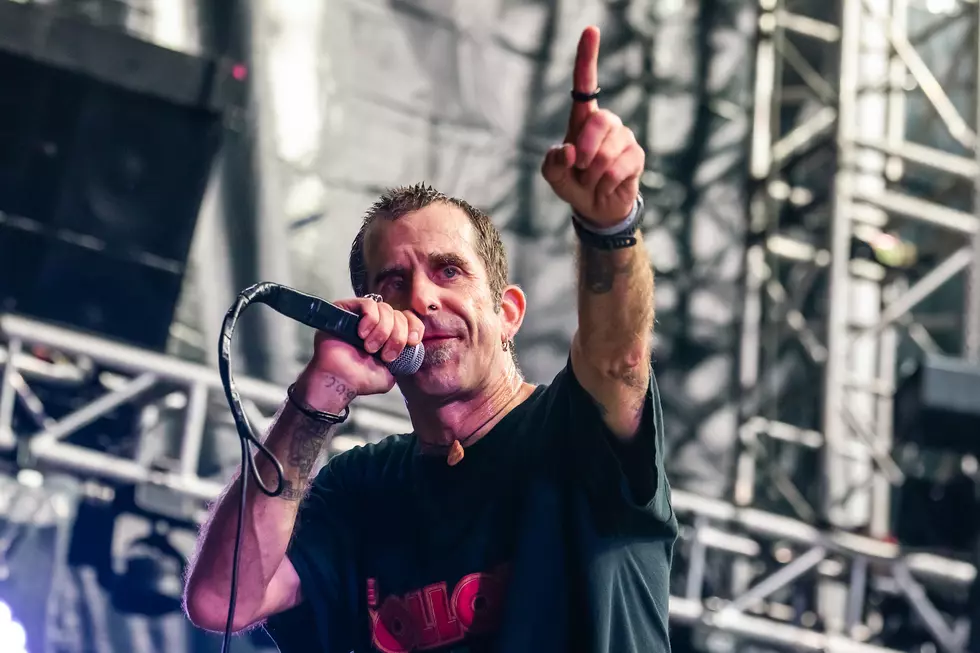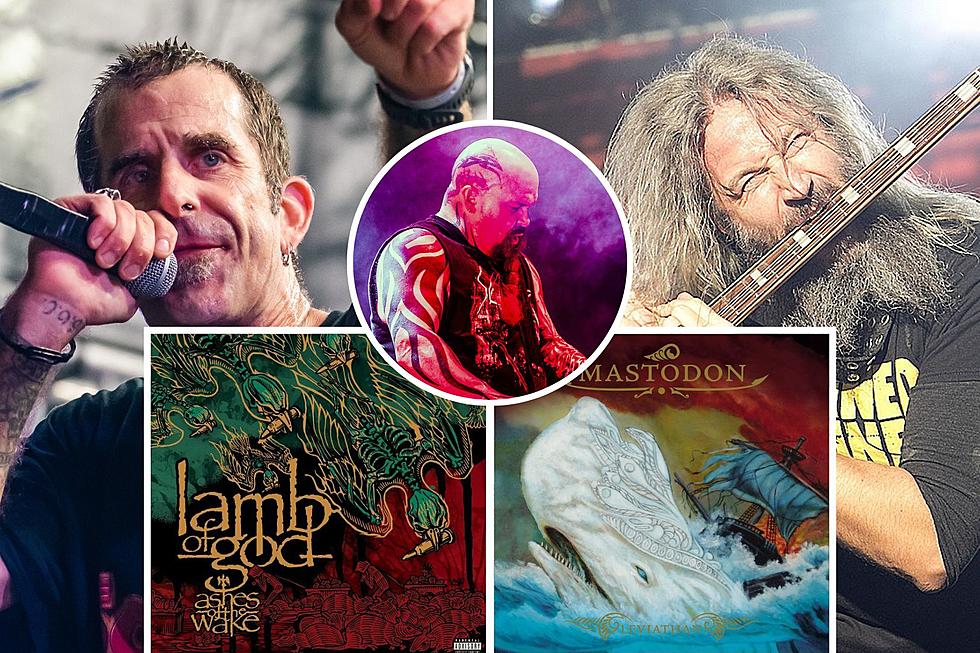
Lamb of God’s Randy Blythe Shares Tips to Effectively Signal a Problem at a Show
In light of the tragedy at Astroworld, the festival put on by rapper Travis Scott which resulted in the death of 10 attendees and injures to many more, Lamb of God's Randy Blythe has shared some recommended safety practices for concertgoers in the event they need to signal to the performer that something is wrong.
Footage circulated online of fans at Astroworld who made several attempts to spur the stoppage of the show as those in attendance began to be crushed by the force of the crowd's movement.
Although Scott did pause the show multiple times throughout his set after seeing distressed fans and asked for security to aid them, it wasn't until local police became aware that the night had turned into a mass casualty event that the show came to a stop completely as the rapper complied with a request to end it.
The video clips of fans begging festival staff members to stop the show spurred speculation across the internet as to how the night didn't come to an end sooner, and in a post on Instagram, Blythe explained why, as an onstage performer, it can be difficult to accurately assess the situation and distinguish pleas from fans from the typical frenzy of fan and band interaction throughout a set.
Prior to Lamb of God's performance at the Welcome to Rockville festival in Daytona Beach, Florida, Blythe shared some safety tips for fans while briefly recollecting his own tragic onstage experience in which a fan died at one of his shows in the Czech Republic in 2010.
"I will not retroactively armchair quarterback the whole Astroworld thing — suffice it to say, A LOT of shit went wrong in many ways. However, I BELIEVE THE BUCK ULTIMATELY STOPS WITH THE PERSON HOLDING THE MIC — anyone who knows my story knows that I have very sad, personal experience with not stopping an out of control show — it’s something I will carry with me to my grave. Being a spokesperson for safer shows is both my responsibility as a good man and the fulfillment of a face-to-face promise I made to the family of a dead fan," he began.
Blythe relayed, "From personal experience, I can say that from the performer’s perspective onstage at a huge festival, it can be VERY DIFFICULT to tell if something has gone wrong in the audience — the noise of the music, the roar of the crowd, the lights in your face, the thousands of people moving all at once — it makes it very hard to ascertain if there is a problem or if people are just having a good time."
Sharing what practices are ineffective, the vocalist explained, "If someone is hurt, screaming, 'STOP THE SHOW!' at the band onstage doesn’t really work, because unless the entire audience is chanting that, it’s just gonna blend into all the noise. Waving your hands frantically in the air doesn’t really help either— it just looks like more movement in a sea of movement."
As for what can catch the attention of a band member in the event something has gone wrong, Blythe detailed two helpful signals that he has "personally seen from the stage that have let me know that someone was injured in the crowd."
"Arms held in an 'x' above your head (picture 1). This is a fairly universal signal that means STOP," he said in reference to the first of two photos in the slideshow post, and, regarding the second image, he said the "time-out" hand gesture can also be effective.
"When I’ve seen several people doing these signals in a crowd together, it looks DIFFERENT than everyone else, and I’ve known something was wrong," Blythe affirmed.
He also echoed the golden rule of the mosh pit, which is if someone falls, pick them back up. "That is how WE do it in OUR COMMUNITY. Nuff said," concluded Blythe who seemed to imply that the circumstances of Astroworld do not apply to rock and metal events, which is false as fans have been crushed at concerts across all genres of music.
Blythe's comments are similar to ones made from Slipknot's Corey Taylor last week, who also preached safety in the mosh pit and added, "No matter what show you go to, if you’ve got eyes, you keep them open, you keep them focused and you look out for one another.”
25 Songs About Real Life Tragedies
More From Loudwire









